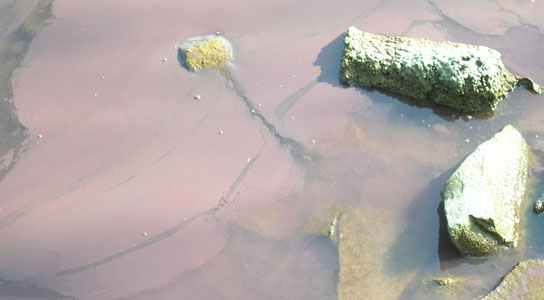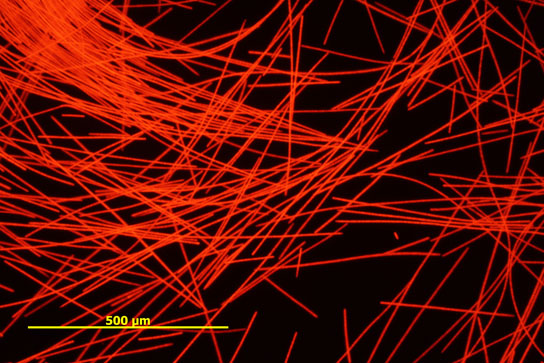
A new study from the University of Zurich found that global warming is having a negative impact on lake water, resulting in rising lake water temperatures that favor the growth of harmful algae.
Global warming also affects lakes. Based on the example of Lake Zurich, researchers from the University of Zurich demonstrate that there is insufficient water turnover in the lake during the winter and harmful Burgundy blood algae are increasingly thriving. The warmer temperatures are thus compromising the successful lake clean-ups of recent decades.
Many large lakes in Central Europe became heavily over-fertilized in the twentieth century through sewage. As a result, algal blooms developed, and cyanobacteria (photosynthetic bacteria) especially began to appear en masse. Some of these organisms form toxins that can compromise the use of the lake water. Dying algal blooms consume a lot of oxygen, thereby reducing the oxygen content in the lake with negative consequences for the fish stocks.
The problem with over-fertilization was not merely the absolute amount of oxygen and phosphorus, the two most important nutrients for algae. Mankind has also changed the ratio between the two nutrients: The phosphorus load in lakes has been reduced vastly in recent decades, yet pollution with nitrogen compounds has not decreased on the same scale. The current ratio between the nutrients can thus trigger a mass appearance of certain cyanobacteria, even in lakes that have been deemed “restored”.

Burgundy blood algae grow more rapidly
“The problem today is that mankind is changing two sensitive lake properties at the same time, namely the nutrient ratios and, with global warming, water temperature,” explains Thomas Posch, a limnologist from the University of Zurich. In collaboration with Zurich Water Supply, he analyzed 40 years’ worth of data in a study that has just been published in Nature Climate Change.
The evaluation of this historical data on Lake Zurich reveals that the cyanobacteria Planktothrix rubescens, more commonly known as Burgundy blood algae, has developed increasingly denser blooms in the last 40 years. Like many other cyanobacteria, Planktothrix contains toxins to protect itself from being eaten by small crabs. Burgundy blood algae were first described in Lake Zurich in 1899 and are a well-known phenomenon for Zurich Water Supply. Consequently, the lake water is painstakingly treated for the drinking-water supply to remove the organism and toxins completely from the raw water.
Warmer lakes have insufficient water turnover
But why does Planktothrix increasingly thrive? The most important natural control of the cyanobacteria blooms occurs in the spring, once the entire lake has cooled down vastly during the winter. Intensive winds trigger the turnover of the surface and deep water. If the turnover is complete, many cyanobacteria die off in the deep waters of Lake Zurich as they cannot withstand the high pressure, which is still 13 bars at depths of 130 meters (430 feet). Another positive effect of this turnover is the transportation of fresh oxygen to the deep. However, the situation in Lake Zurich has also changed drastically in the last four decades. Global warming causes rising temperatures at the water surface. The current values are between 0.6 and 1.2 degrees Celsius or 1.1 and 2.2 degrees Fahrenheit (above the 40-year average. The winters were increasingly too warm and the lake water was not able to turn over fully as the temperature difference between the surface and depths posed a physical barrier. The consequences are larger oxygen deficits for a longer period in the lake’s deep water and an insufficient reduction of the Burgundy blood algae blooms.
Hope for cold, windy winters
“Unfortunately, we are currently experiencing a paradox. Even though we thought we had partly solved the nutrient problem, in some lakes global warming works against the clean-up measures. Therefore, we primarily need cold winters with strong winds again,” says Posch. As far as the researchers are concerned, the winter of 2011/12 was just what the doctor ordered: The low temperatures and heavy storms allowed the lake to turn over completely and ultimately resulted in a reduction in Planktothrix.
Reference: “Harmful filamentous cyanobacteria favoured by reduced water turnover with lake warming” by Thomas Posch, Oliver Köster, Michaela M. Salcher and Jakob Pernthaler, 8 July 2012, Nature Climate Change.
DOI: 10.1038/nclimate1581